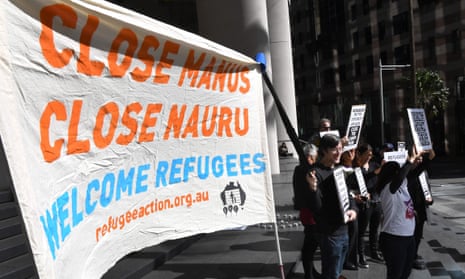Australia’s human rights record will be critically assessed by a panel ofexperts this week, with controversial asylum policies and persistent indigenous issues highlighted as areas of significant concern.
As Australia prepares to join the UN’s powerful human rights council, officials from Canberra will appear before the UN human rights committee in Geneva on Wednesday and Thursday.
But from Monday, a coalition of non-government organisations will brief the committee on rights issues across Australia, and the country’s compliance with global rights treaty, the International Covenant on Civil and Political Rights.
On the same day, Australia will be elected unopposed to the powerful, but controversial, UN human rights council, in New York.
While a report prepared for the Geneva committee argues while Australia has made some positive steps towards improving human rights protection, such as sex discrimination laws and parliamentary scrutiny of rights in legislation, it says “in some areas Australia has clearly gone backwards”.
Australia’s policies of boat turnbacks and indefinite offshore detention (re-introduced since Australia’s last assessment) are in violation of international law, and expose refugees, to whom Australia legally owes protection, to danger, and imposes cruel, inhuman and degrading punishment. The federal government recently agreed to pay $70 million in compensation to men illegally detained in dangerous and damaging conditions on PNG’s Manus Island.
Other issues cited as examples of Australia’s regression include: reports of systematic violence and abuse against children held in youth detention; the Australian federal police’s information-sharing with foreign security agencies that lead to the imposition of the death penalty; increased police powers to lock up indigenous Australians without charge; and extreme metadata retention laws.
The director of legal advocacy with the Melbourne-based Human Rights Law Centre, Emily Howie, told Guardian Australia: “A close look at Australia’s human rights record shows that Australia is going backwards almost across the board – on treatment of refugees, indigenous incarceration, violence against women, protecting children in youth justice and the physical safety of people with disability”.
“Even our basic democratic rights, once supported across the parliament, are being diminished by excessive secrecy in government and laws that stop people from speaking out even where they witness human rights abuses or government misconduct,” Howie said from Geneva.
Howie said persistent rights issues had damaged Australia’s international reputation.
“Unfortunately, the asylum policies and treatment of indigenous people cast a pall over Australia’s international reputation ... If Australia wants to be taken seriously as a champion of human rights on the [human rights] council, it urgently needs to lift its game.”
In its report to the committee, the Australian government said it was committed to its international obligations and to upholding human rights.
“Australia implements its international obligations through a range of measures, including through legislation, policies and programs at federal and state levels, and through common law.”
The government defended offshore detention and processing as legal.
“New memoranda have been entered into with both Nauru and PNG ... both countries agree to ensure that transferees will be treated with dignity and respect and that relevant human rights standards are met.
“Having been granted the above-mentioned assurances by Nauru and PNG, and having assessed the totality of the circumstances, Australia’s position is that transferring people to the sovereign states of Nauru and PNG for the processing of their asylum claims and settlement there does not breach Australia’s international obligations.”
Australia signed the optional protocol to the convention against torture and other cruel, inhuman or degrading treatment or punishment (Opcat) in 2009.
Eight years on, it has still not ratified the Opcat, but has promised to by December this year. The protocol would require Australia to establish a monitoring mechanism to monitor all places of detention, including immigration and juvenile detention, prisons and police watch-houses.
In February, foreign affairs minister Julie Bishop and attorney general George Brandis, in committing Australia to ratifying Opcat, said it would be “another significant human rights achievement for the Turnbull government”.
“It will improve the oversight of places of detention in Australia, and it reflects the government’s commitment to preventing torture and mistreatment.”
Howie said Australia must honour its commitment to finally ratify Opcat.
“The case for it is clear. We’ve seen from the horrific images at Don Dale just how much we need a youth justice system that helps rather than harms children. That immigration detention has led to fear, violence, suffering and death. Ratifying Opcat is a step towards rectifying the conditions in which some of this harm takes place.”

Comments (…)
Sign in or create your Guardian account to join the discussion